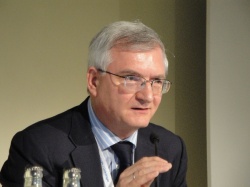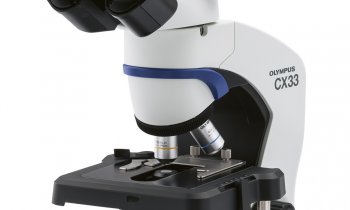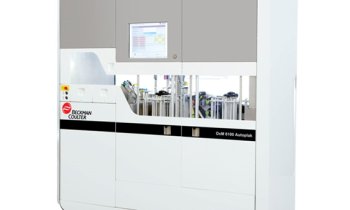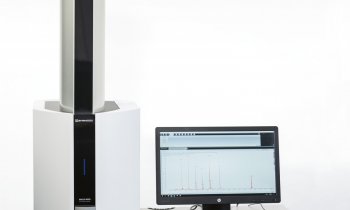Protecting a specialty and warding off commercialisation
For some time, German pathology has only been in the background of the medical disciplines. However, during the last ten years the profession stepped up to the fore. In the face of molecular medicine developments, the German Association of Pathologists redefined its members position with revived self-confidence.


In May 2010, at its 10th Congress, a future strategy was presented that takes into account the increasing impact of prevention, diagnoses and therapies on molecular cancer.
With the discovery of a direct correlation between gene structure and type of cancer, a new branch of molecular pathogenesis has evolved, accompanied by the development of novel, molecular targeted diagnosis, therapy and preventive strategies, as well as agents, to treat cancer.
Special indicators in the gene-structure -- predictive biomarkers -- can prove the probability of cancer and detect the possible response to a targeted cancer therapy via gene mutation; hence predictive biomarkers facilitate the choice of the best individual cancer treatment.
Molecular pathology has developed several tests to validate personalised cancer therapies. But, in the past, the application of molecular pathology methods for diagnoses was mainly focused on rare tumours, such as malignant lymphoma or sarcoma. Within the last two years, however, the demand for molecular pathologic performance increased. As Professor Thomas Kirchner, head of the Institute of Pathology at Ludwig-Maximilians-University, Munich, explained: ‘Nowadays, prior to medication, gene mutation has to be verified to validate the respond for targeted therapy in the case of colon and lung carcinomas, the most common types of carcinoma.’
The German model
The strategy of the Association of Pathologists to keep pace with the general trend towards molecular cancer diagnostics and treatment was presented in the ‘Focusing our strengths’ session.
Also referred to as ‘The German model’ by Gisela Kempny, the association’s managing director, the strategy is based on four objectives.
First, the Association aims to maintain its peripheral (decentralised) centres of pathology. Currently Germany has around 450 pathology centres, she pointed out. With this first aim, the pathologists are trying to counteract the general trend towards the centralisation of pathological laboratories.
To ensure a decentralised structure, knowledge is important. To this end, the Association compiled a molecular pathology guide. This includes the most important molecular pathology examinations, possibly occurring procedural problems, and advice for drawing up an account. At first place, the guide (to be released in a few months) covers, for example, K-RAS (Kirsten Rat Sarcoma) mutation testing.
Second, the pathologists want to keep all the necessary diagnostic steps in their hands. In the case of a tumour, this means the optical or morphological identification, withdrawal of tissue or cells (dissection), morphologic or molecular examination and, finally, interpretation of findings. Prof. Kirchner called these steps a ‘one-stop’ diagnosis.
With the rise of molecular pathology in oncology, other physicians also enter the chain, as laboratory physicians or oncologists, which is why pathologists are so keen to claim their traditional field of work for themselves. Currently, traditional morphological examinations outweigh the morphological ones in pathology. According to Prof. Kirchner, ‘In bigger institutes, molecular pathological evaluation is practised only in about five percent of cases.’
A third aim is to ensure the external quality assurance of new genetic tests due to a freedom of methods that guarantees, for example, independence from pharmaceutical companies. The German Pathology Association promotes external quality assurance by verifying a new method with a ‘round robin’ test.
To explain a successful round robin test, Prof. Kirchner referred to a test for K-RAS mutation in colonic carcinoma. In this connection, only the quality of outcome had been evaluated, which guaranteed a diversity of methods, preventing confinement to only one test method -- easily resulting in a test monopoly. The latter could entail increasing costs, for example for the kits, and would implicate a narrowed number of users.
Due to the increasing impact of cancer treatment in the future, the pharmaceutical industry is very interested in molecular pathology of cancer sector. Prof. Kirchner quoted an evaluation from IMS Health, a firm that provides information and consulting services to the healthcare market. This company predicts worldwide sales of cancer drugs to be between US$75 - 80 billion in 2020. In 2007, sales reached only US$41 billion. This indicates high healthcare interest in cancer diagnostics and therapy. Therefore, Prof Kirchner concludes, independence from industry, apart from production partnerships, will remain as essential as always, to guarantee patient-oriented cancer treatments and acceptable costs.
29.12.2010











